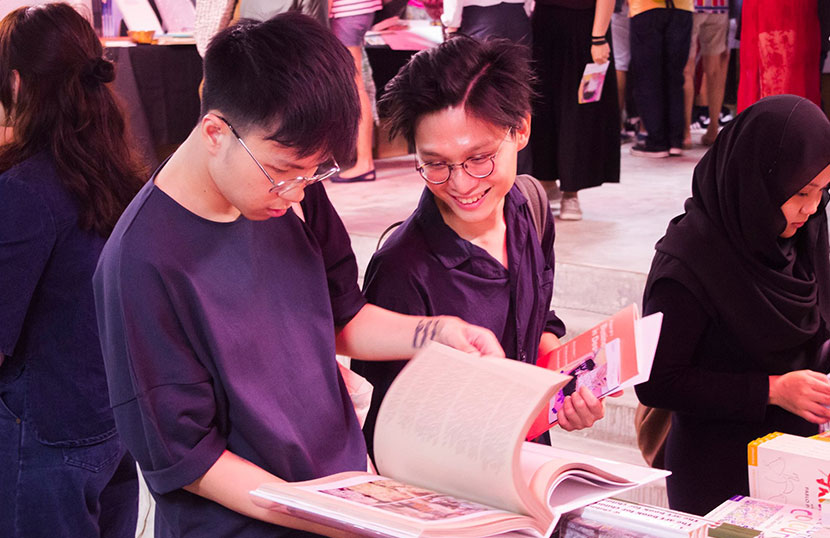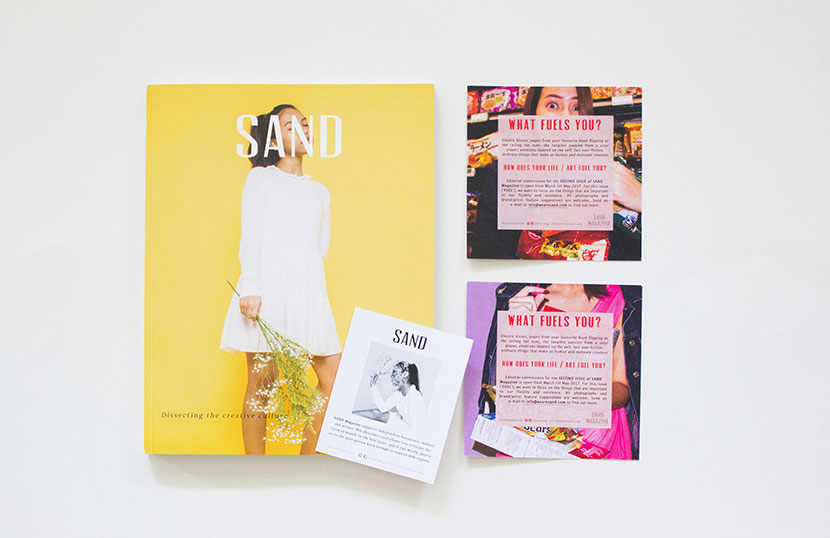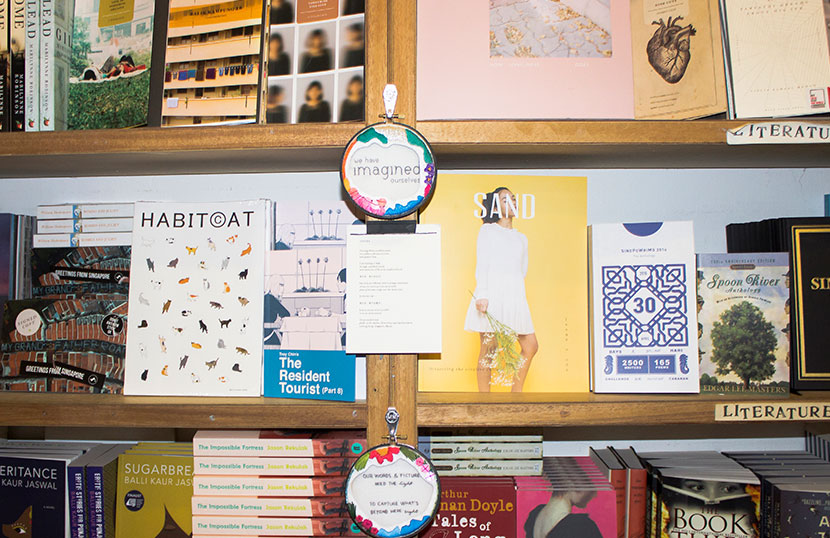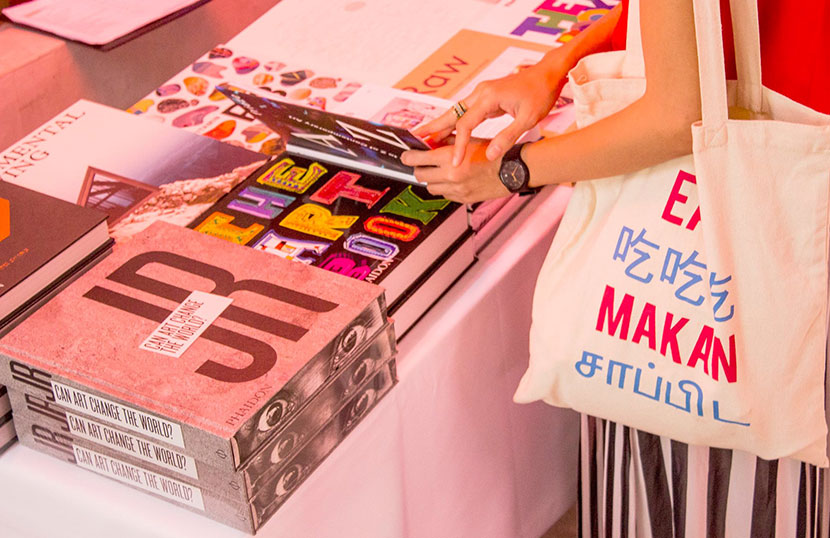By Cheryl Lim
While print circulation has generally fallen with more eyeballs shifting to the mobile space, there’s no lack of new zines – the informal term for self-published magazines, in Singapore.
The passion for these ‘zines’ was particularly evident during Singapore Art Book Fair (SABF) 2017, which took place from Apr 28 to 30.

Helmed by independent bookstore and publisher BooksActually, the fair provided local titles, especially contemporary art books and ‘zines’, with a platform to parade their craft to the public.
The current recognition accorded to such ‘zines’ is a far cry from 2013 when BooksActually kick-started the fair. This year saw an exceptional growth in the local ‘zine’ landscape, with an addition of 10 more exhibitors from 34 in 2016.

Photo courtesy of: SAND Magazine
Editor-in-chief of SAND Magazine, Ms Racy Lim, 22, described Singapore’s local ‘zine’ community as “vibrant”, with their first issue shining light on the local creative community. Launched in December 2016, the biannual magazine sells at $26 and their second issue will be out in September 2017.
She remarked: “I think people just wanted variations of content, things that they’ve never seen before and this sparked the opportunity of creating something of their own to fill the gap [in the market].”
 Photo courtesy of: BooksActually
Photo courtesy of: BooksActually
Other self-published magazines alongside SAND Magazine that have emerged in the past few years include The Ideology, VIRUS, Staple, Mynah and Galavant. The magazines are available on their respective websites. Magazine distributor Magpie Magazines and local design retailer Naiise have also helped to boost the growth of home-grown ‘zines’ by allowing sales distribution to be more readily accessible to the public.
Ms Pearlin Siow, 41, founder of Boss Of Me, a company which helps authors publish their work, told The New Paper that there has been a rise of at least 80 per cent in the number of people who self-publish their works, compared to when the company was set up in 2011.
Whether these independent publications focus more on literature, design, photography or the creative lifestyle, it is clear that most are fueled by passion and the desire to leave their imprint on the local arts scene.
Ms Renée Ting, 25, festival director of SABF and manager of BooksActually, agreed that the local self-publishing scene is “thriving”.
She said: “I think the increase comes from everybody who’s doing their own thing. The local self-publishing scene is not saturated yet [so] people are still very open to new ideas. There’s still a lot of room for young people and designers to come out and do their thing [without being] lost in a sea of creativity.”
This growth is a good barometer of where a country stands in terms of its cultural maturity and creativity.
“It’s not just in the way we create things, but also in the way we receive things,” Ms Ting observed.
‘Zines’ are often used as a platform to bring social issues to light. Some popular topics include politics, entrepreneurship, LGBTQ and feminism.
The Local Rebel, a group of youth intersectional feminists, has leveraged on print to spread their activism and raise awareness about social issues. They first started online and eventually decided to launch their pilot ‘zine’ in November 2016 at $13.90 each.
Editor-in-chief, Aisyah Amir, 20, said: “Our arts scene is very small but it is passionate, so a ‘zine’ being [a] very unique form of expression to each brand, is quite appealing.”
Squelch Zines, a ‘zine’ store by three LASALLE College of the Arts graduates, focuses on building an active and nurturing community for unique creatives to share their stories, knowledge, and experience through ‘zines’. Their Zine Jam workshop hopes to encourage everyone to explore new methods of craft and hand-make their own ‘zines’ from scratch.
Ms Janice Chua, 28, co-founder of Squelch Zines, explained: “Anyone can make a ‘zine’. You just need to think about what you want to say, what your content is going to be like and how you’re going to convey your message. There are no constraints at all.”

Photo courtesy of: BooksActually
Mr Nicholas Loke, 29, another co-founder of Squelch Zines, claimed that despite the small local community, ‘zines’ are starting to cultivate a more diverse identity for themselves.
According to Ms Ting, as much as things are going online, people would always find their way back to their traditional roots and pick up a book or magazine.
She asserted: “Ultimately, something tactical is very essential to human beings. We always need to touch things, feel things and be in contact with things and people.”
